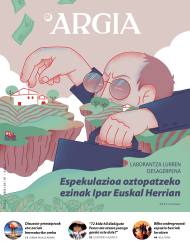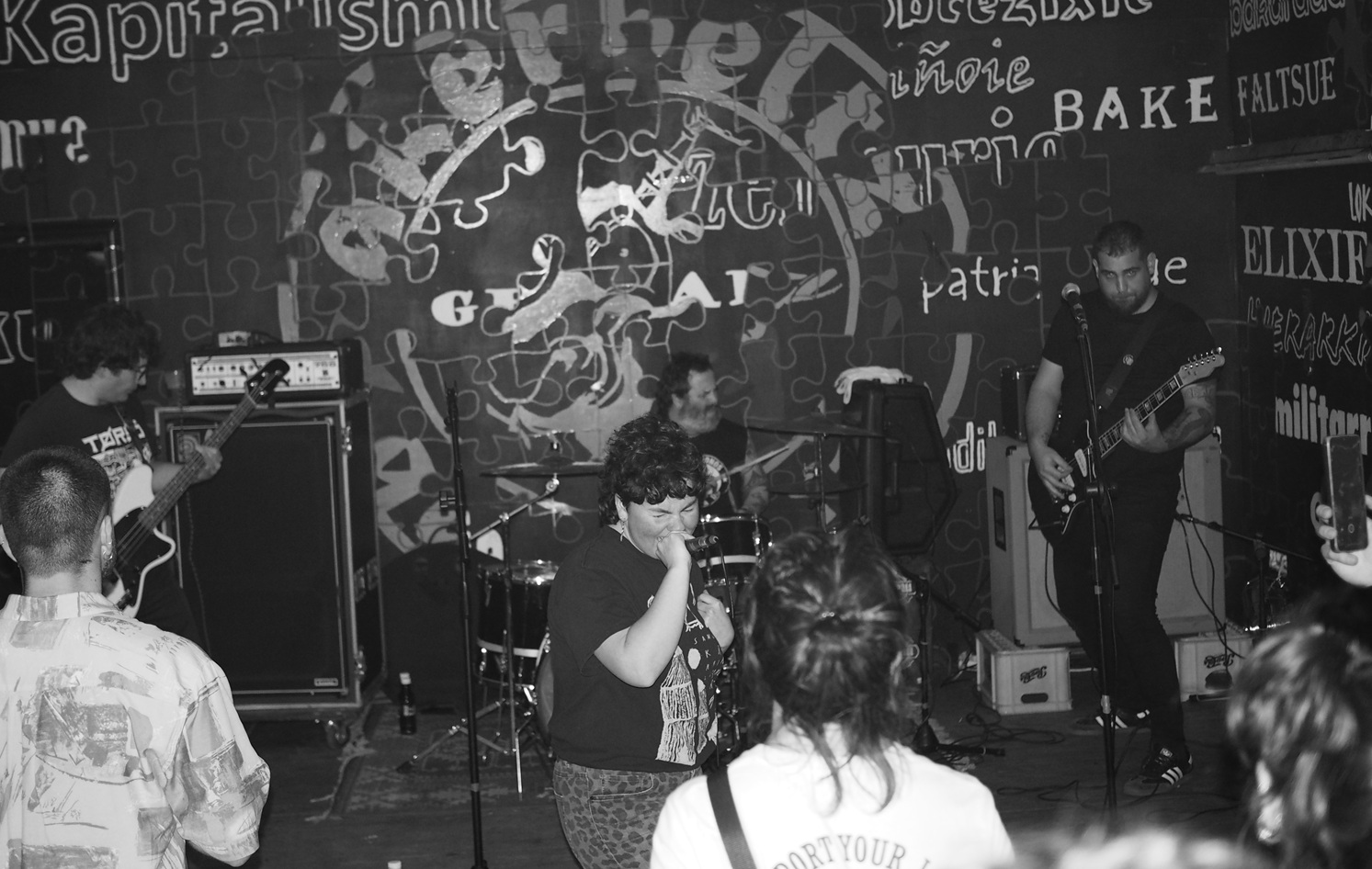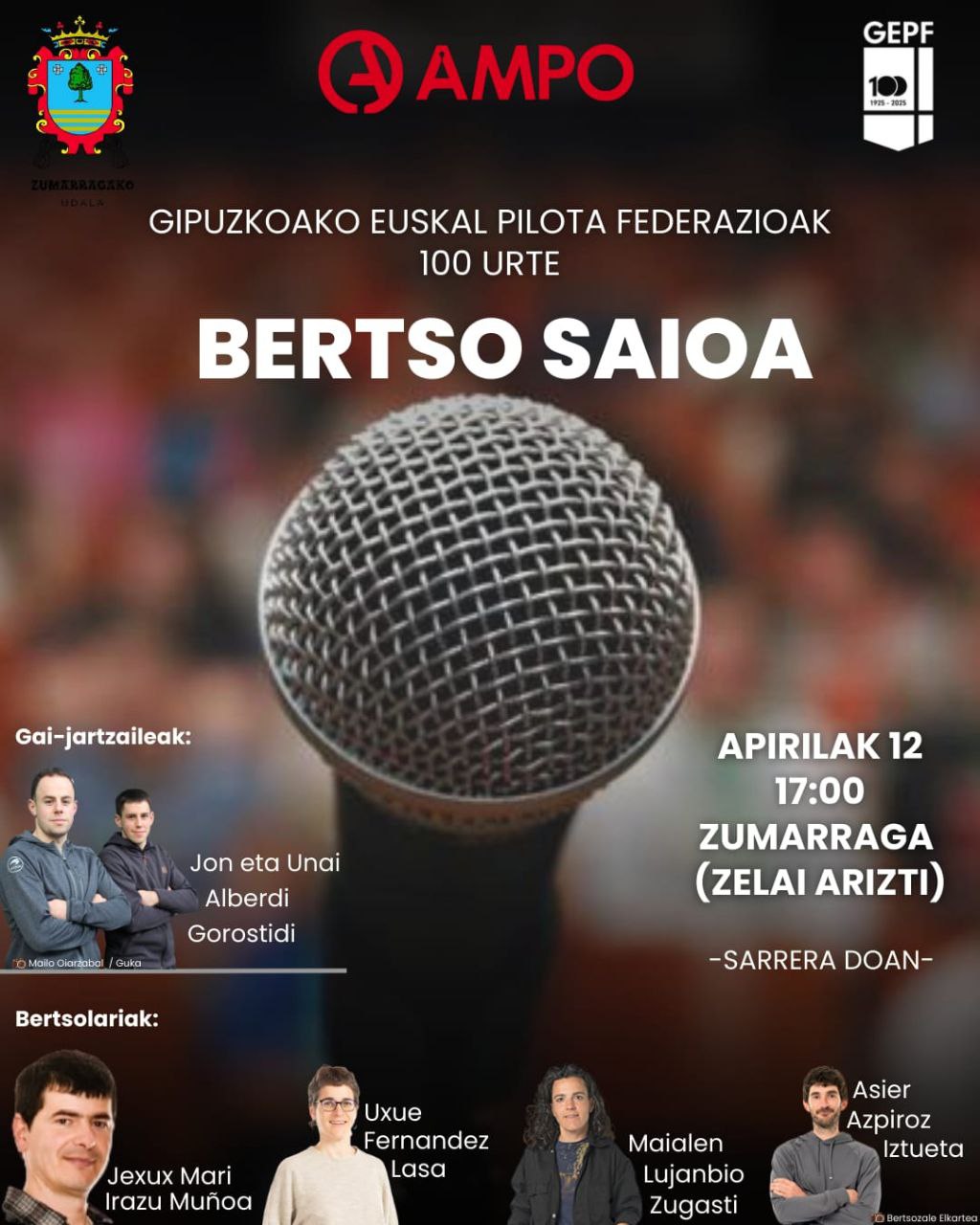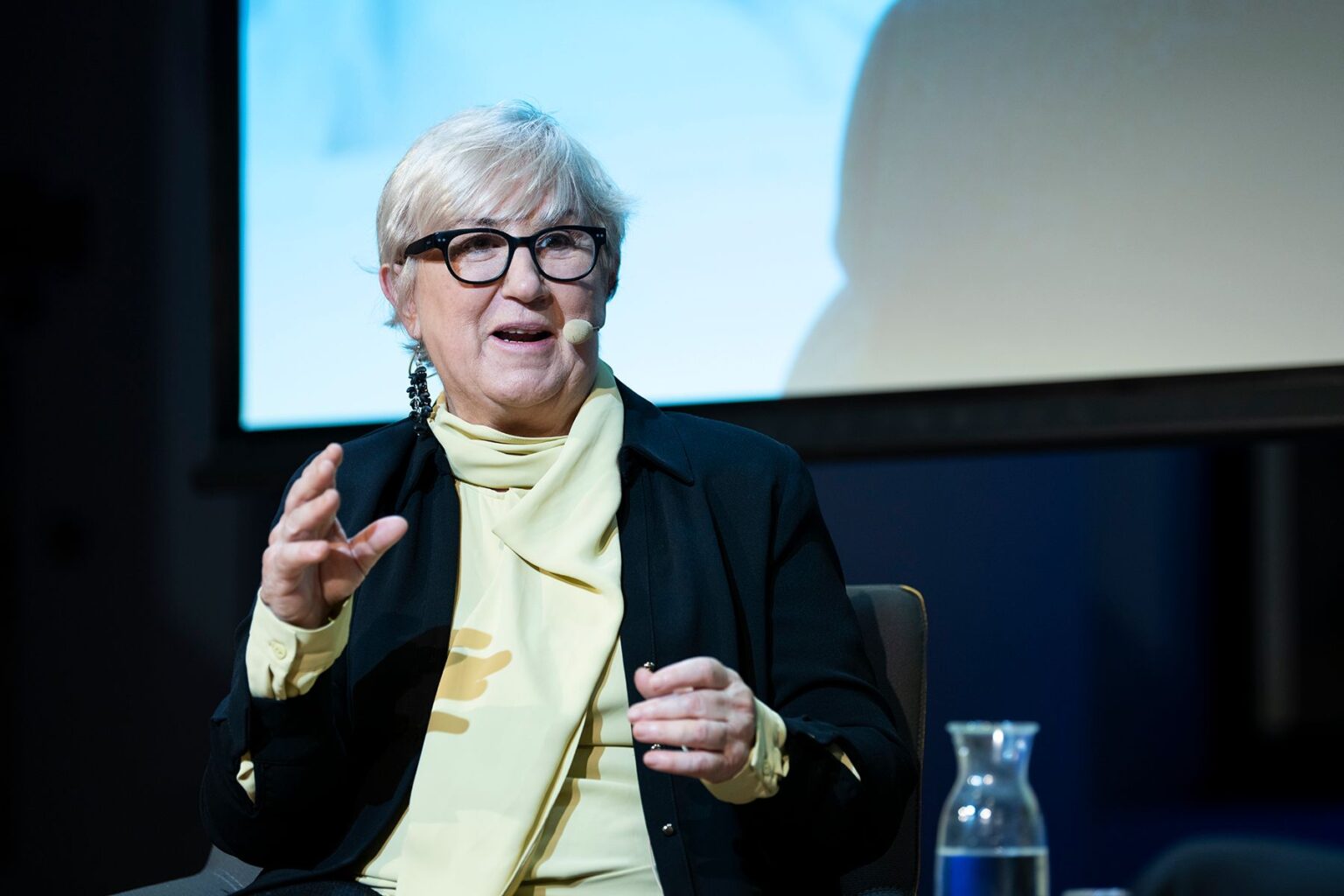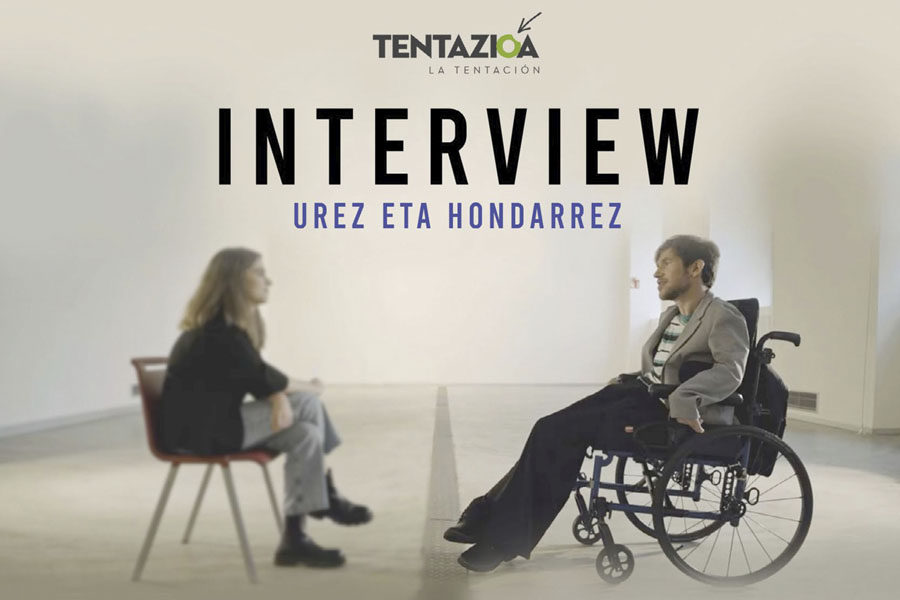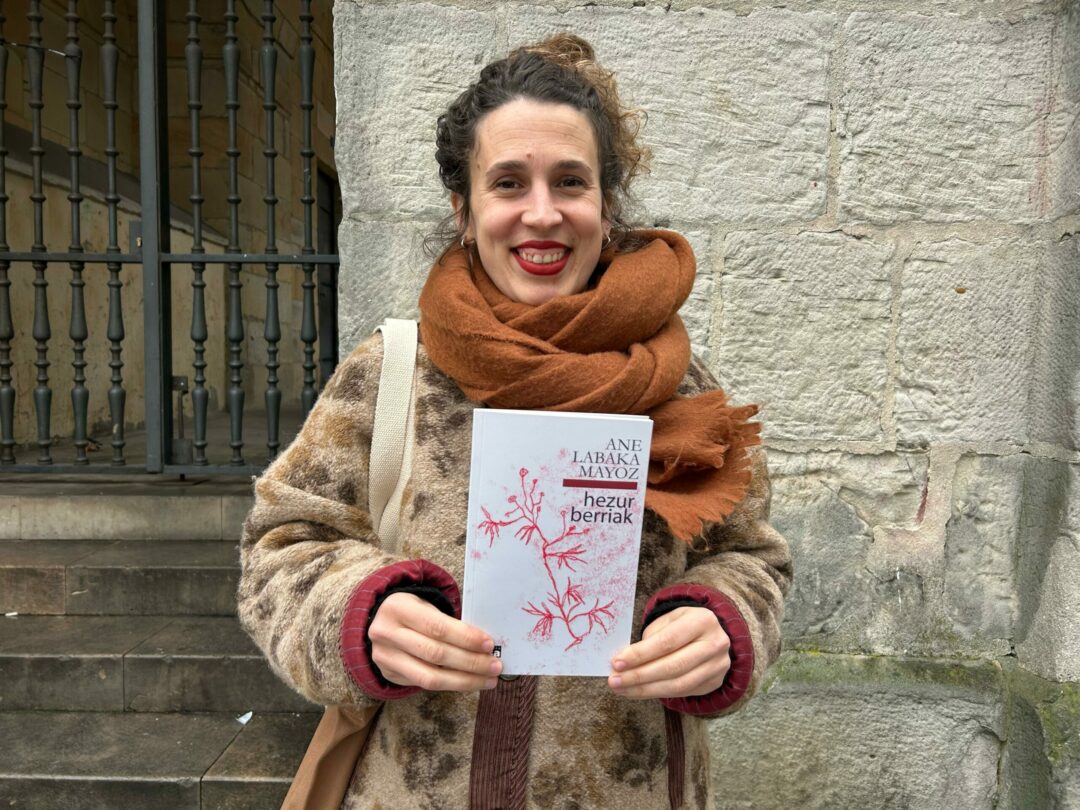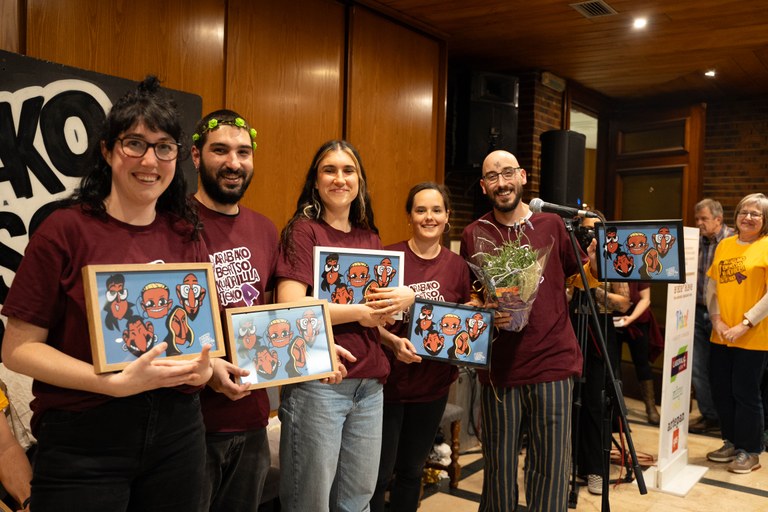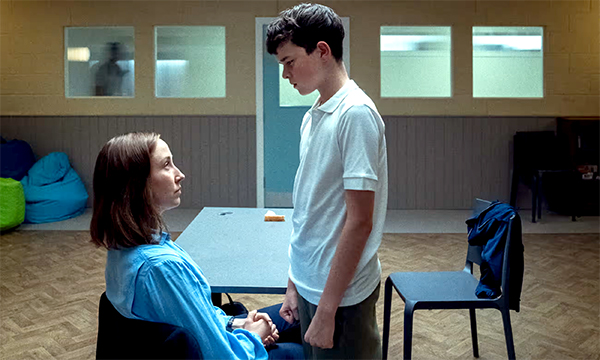Something lights up in Bilbao
- According to some theories, when collapse occurs, fungi will be one of the few living things that will survive and reactivate life on earth. Yeah, fungi, those mysterious little organisms, and nothing else. Thus, we have placed hope in initiatives such as fungi before the collapse of our city, even the cultural collapse. Something is awakening in Bilbao and in many places initiatives are flourishing that try to deal with the cultural apathy that this city suffers, they propose something different, they want to accommodate another creativity.

It is not that there is no cultural
offer in Bilbao, but that the offer is very institutionalized, made from the top down. There are concerts and disco sessions, there are options and places. Festivals take the city and fill with sound, but the way to consume music is fast and the importance is situated in the leisure experience, rarely in creation. So often, the city is just a big wallpaper and the viewers have become mere figurants. Consumer only. Bilbao is a culturally colonized city. As a cement monolith, a private initiative of the city has monopolized the entire musical offer of the city with strong subsidies. Full? No, there are initiatives that try to create slits in cement, that seek to create new respirators in cold and gray material. Some have been working for some time, many have been born after the pandemic. There are, therefore, other ways of enjoying culture, which deal with municipal impediments, police fines and flying neighbours.
The center of the city is the core of this colonization, the body of capitalist realism, a space that leaves no alternative. All these new initiatives have therefore been located on the periphery. Thus, surrounding the city, they work in neighborhoods like Errekalde, Atxuri or Irala, trying to place these marginal spaces at the center of the cultural offer. In this text I have tried to map some of these experiences, spaces and initiatives, paying attention to the particularities and similarities of each offer. Of course there are initiatives that are outside this map, that have been left out of our radar. We can only apologise to them and thank them for their work.
Spore: from the individual to the collective Pandemia was the end of a mythical space in Bilbao: Larraskito. For years, many performances and experimental music auditions took place in this corner of Rekalde, giving space to marginal sounds and small format offerings. For many, unforgettable nights were created, a place to meet and share varied music. Space is maintained, but its operation and use changed radically, leaving many people
orphans. Many questions in the air: where would people get together to enjoy those proposals? Where could these marginal sounds be heard? What would happen to the network co-infected over the years?
.jpg)
A group of friends who emerged for months around Larraskito answered these questions: “When someone was on the tour we didn’t know where to write, we started to become aware of the need to have a space.” These initial encounters to maintain the relationship and spend time have sown a new project: the Spora space. They've taken the name of very small reproductive bodies in some fungi. These bodies have the ability to survive in less favorable conditions, and that's what the new space is looking for, to create something solid from the small and the collective. To this end, they have created a partnership in which anyone interested in creativity and experimentation has room. They have formed a large fixed nuclear group and created different members' figures: “So each one will decide what kind of involvement they will have. There will also be the possibility of being a one-day partner, for those who only wish to participate in a concrete action.”
Spore: "Can you understand it as a cultural militancy? We don't know. It's clear that it's not a focus of distension."
Talk a lot about what spore is and what it's not. Although the project is being defined as travelling, it is clear that it will not be a place of parties or a place of rapid consumption of culture: “It will not be a leisure space, at least as the consumer society understands leisure”. In this new space, you're clear that there will be an audience in the center. It is not going to be a mere pastime, every initiative that is made in this place has to have a sense: “Basically, the initiative we have organized has all the importance and we are going to organize around it, seriously and with the importance it deserves.”
Can it be understood as cultural militancy? “We don’t know if that’s the best definition. It is clear that it will not be a distension zone. What we propose here will be a food.” Other kind of setbacks will be those that enhance the Spora space, difficult to find in the city. The criteria for the type of music are broad, provided certain characteristics are met: it must be a music that cannot be heard elsewhere. Live music will not be the only offer, but they must also hold discographic auditions and workshops: “As I said, there will be a hearing in the center. We want to listen to music with good quality and with the attention it deserves, that it is not a juerga soundtrack.” So far several live auditions, albums and a Deep Listening workshop have been organized in this corner of the bank.
Kantauri: take means of production “What do we need? That’s what we’re going to take.” It's clear Ando, a
dwarf who's been in thousands of battles. Therefore, when the collective Pantx had to leave the premises at Iturribide Street, they started searching and got there. “Four years ago the Priscilla group offered a concert in Semana Grande and with the money obtained they rented and conditioned a place on Aita Larramendi Street in the Ametzola neighborhood.” The space is open to all artists, but it is a priority to offer a recording studio and live performances.
.jpg)
Cantabrian: "It's the total area. You can test, record, play live and arrange punctures."
But the Priscilla group was dismantled and, although they maintained the site, its operation decreased. The Pantx friends found that this space was not in use while searching for a local. “How? What is this? We had no doubt, we entered it and started working.” Those in Pantx have been working in an assembly for less than a year. It has been given the name of Kantauri, where they offer punches and concerts open to the public and, when necessary, use the study to make recordings of albums or songs loose. “The recordings of the Pagasarri All Stars have been made here, as well as other groups. We are very happy with the outcome.” Thus, the site can also function as a winter factory to sow and harvest: “It is the total area. You can test, record, play live and arrange punctures.”
Donations Project: Cultural and Social Responsibility The Joana Donations Project initiative was born a long time ago in the Barcelona district of Raval. In 2016, he began to give another meaning to the techno-parties he organized: “Among all of us who organized, each month I decided to devote a session for charity.” In this way, he shared the benefits of these festivities among different social activities: he financed social canteens and public showers in the neighborhood, or sent food and resources to distant places. In 2020 he moved to Bilbao and decided to continue with the project: “In the city he knew nobody and it was also the way to create relationships and a network”. But the pandemic hampered their intentions. The first acts were organized in a
place of Andrés Isasi de Irala Street for 25 people and respecting all established norms.
But the exceptional health situation was not the only obstacle. Shortly after taking the first steps of the project, he faced another scourge afflicting Bilbao: real estate speculation. “A vulture fund that bought the building in which he lived and organized festivals and made us amazing those of us who lived in it to push us to leave our spaces. They cut off the light and put us in aggressive private security, among other things.” Although he tried, he eventually had to give in.
Donations Project: "I want to be small, the most important thing to have personal experience"
He soon started looking for a new place. And he finds it. The new Donations Project headquarters is located in the Larraskitu district, also on the periphery. Its objective is and works to continue organizing initiatives related to social action. To date he has organised live musical performances, auditions related to sound research, photo exhibitions, tarot workshops, etc. “They are only initiatives for 50 people. I want them to be small, so that personal experience is the most important thing. This is not a party, nor a place of socialization, at least as usual.” So far all the acts have been sold out and distributed the money obtained to the people in need: to young people living under a bridge in Barakaldo or to a Senegalese association that joins material for hospitals.
Other spaces have been created The spaces mentioned above are
not the only ones; on the underground map of Bilbao there are other spaces of interest. The fungi continue to spread by the cement of Bilbao. One of them is Sarean Gunea, a veteran project in the process of regeneration. Located in the San Francisco neighborhood, in Plaza Corazón de María, this space has resumed the offer of concerts, conferences, workshops, etc. after months of internal debate. The intention is to present the reality of the neighborhood and offer a cultural alternative to the needs of both the neighbors and the neighborhood.
.jpg)
A group of people from the occupation and punk movement have formed Lakobra Collective after seeing the need to launch in Bilbao a self-managed project related to music. The lessons learned from past experiences have decided to work in an assembly to combat savage consumerism and organize underground proposals in the city. The project, which aims to be of long duration, is in the embryonic phase: they search for premises after a successful collection campaign.
Erratic Creation Space is one of the last projects that has seen light. Located in Deusto, this space is very related to the audiovisual world. Therefore, they will prioritize exhibitions, workshops and courses related to the world of photography and film.
Aposapo + Mäte + Daño Dolor
When: April 5th.
In which: In the Youth Center of Markina-Xemein.
---------------------------------------------------------
I’ve made my way to the cheese house with the shopping cart full of vegetables, and we’ve spent the evening cutting... [+]
Poliorkêtês
Kerobia
Autoekoiztua, 2025
--------------------------------------------------------
Azken aldian, lerrootan asko nabil hausnartzen musikak izan beharko lukeen “misio historikoaz” eta abarrez. Eta, nolabait, zer egin beharko lukeen... [+]
Under the asphalt, the flower
Text: Monica Rodriguez
Illustrations: Rocío Araya translation
of: Itziar Ulcerati
A fin de cuentos, 2025
Ereserkiek, kanta-modalitate zehatz, eder eta arriskutsu horiek, komunitate bati zuzentzea izan ohi dute helburu. “Ene aberri eta sasoiko lagunok”, hasten da Sarrionandiaren poema ezaguna. Ereserki bat da, jakina: horra nori zuzentzen zaion tonu solemnean, handitxo... [+]









